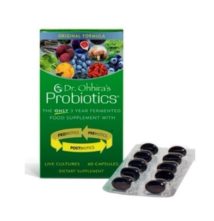These days, you’d be hard-pressed to find a coffee shop, or grocery store, or even a restaurant that doesn’t have gluten-free options on the menu. It’s pretty much everywhere. But are people actually becoming more gluten intolerant? Or is it just the buzziest food trend of the moment? We dug into a little research to find out more.
Let’s start at the beginning. What is gluten anyway?
According to the Celiac Disease Foundation, “Gluten is a general name for the proteins found in wheat (wheat berries, durum, emmer, semolina, spelt, farina, farro, graham, KAMUT® Khorasan wheat and einkorn), rye, barley, and triticale – a cross between wheat and rye. Gluten helps foods maintain their shape, acting as a glue that holds food together.” It should also be noted that of the gluten-containing grains, wheat is by far the most commonly consumed.
What is the difference between gluten intolerance and full-blown Celiac disease?
Simply put, gluten intolerance is when the body, particularly the gut, can’t properly digest gluten. It can range from cramps and gas to fatigue and migraines. Celiac disease is much more serious. It’s actually an autoimmune disease that occurs when certain people (that are already genetically predispositioned to the disease) ingest gluten, leading to an attack on the small intestine. It’s hereditary and affects about 1 in 100 people worldwide.
Loss of microbes could be the culprit.
It’s been a hot topic of debate of the late, whether there’s actually a growing number of people becoming more gluten intolerant or if it’s just a buzzy diet trend, but there are a few theories as to why more and more people are claiming gluten intolerance. For starters, we (society as a whole) are eating cleaner than ever before. Some researchers believe that the increase of gluten intolerance comes from the lack of bacteria in our bodies. This happens gradually, over time, but the loss of microbes like bacteria, parasites, and fungi can actually make digesting certain foods more difficult.
Or perhaps, we are eating too much gluten in general.
Another theory is the overconsumption of gluten in our diets. Back in the hunter-gatherer days, most humans would typically fuel up mostly on proteins and nutrients from plants and animals. In today’s world, we’re constantly on the go, and find grabbing a quick (often overly-processed) meal seems far more time-efficient than cooking up from veggies and organic meats from the farmer’s market. According to Donald D. Kasarda, a researcher with the United States Department of Agriculture, the U.S. has tripled its amount of wheat gluten consumption in the past 40 years. Perhaps the problem is really just that we are eating too much and making ourselves sick.
Okay, so how do we fix this?
If you’re experiencing bloating, fatigue, mood swings, dizziness, or an array of digestive issues after eating gluten the best thing you can do for yourself is to see a nutritionist. It’s very likely that you may have an intolerance to gluten, but it could also mean that you may have other digestive issues. Listen to your body! If certain foods are making you feel less than 100%, take a mental note, and bring it up on your next visit. Sure, it’s a bummer to think that things like pasta and bread (two of life’s greatest delights) are making you sick, but luckily there’s a slew of gluten-free options for literally everything to make you feel like you’re not missing out on much.



















